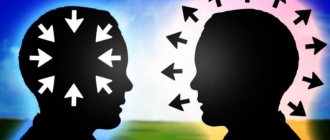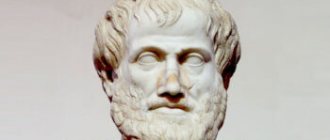Have you heard of Sigmund Freud? Surely yes. Someone will even be able to show off a quote from the famous psychoanalyst. But psychological science does not live on Freud alone! It has developed over many centuries and is rich in people who have thought and drawn conclusions about the nature of the soul, mind, and psyche.
We invite you to expand your horizons and get acquainted with the ideas of outstanding thinkers, as well as learn how psychology has turned from a speculative discipline into a real science.
Psychology in the Ancient World
The history of psychology begins with Ancient Egypt. It was there around 1550 BC. e. The Ebers Papyrus was created - a collection of medical texts, one of the oldest works containing medical knowledge. It mentions mental health conditions such as dementia and depression for the first time.
But the earliest psychological experience is considered to be the experiment of Pharaoh Psammetichus I, described by the ancient Greek historian Herodotus in the book “History”. In order to determine which race was the most ancient - the Egyptians or the Phrygians, the pharaoh did the following: he gave two newborn children to the shepherd and ordered them to be raised in a remote hut. The main condition of the experiment was complete silence, i.e. the shepherd was forbidden to talk in the presence of babies. In this way, Psammetichus I wanted to find out in what language the very first word would be uttered by the children, and in accordance with this, draw a conclusion about the most ancient race.
After 2 years, the long-awaited “bekos” came from the children’s lips. It turned out that this is a Phrygian word meaning “bread.” So the Egyptians decided that the Phrygians were a more ancient race than themselves [Waterfield R., Dewald C., 1998].
If we consider psychology as a discipline that studies the mind, then the philosophers of Ancient Greece were certainly the first to contribute to its development. For them, understanding the structure of the soul and mind was an important part of intellectual research. The theories of the ancient Greeks were closely related to ethical, physical and metaphysical concepts. Let's see how their thought developed.
Thales and Anaximenes
Thales and Anaximenes were Greek thinkers who were more interested in cosmogony and cosmology than in the study of man. Thales of Miletus believed that the whole world has a soul. He viewed it as a source of life and movement.
Thales's compatriot Anaximenes fleshed out this concept by drawing an analogy between the human soul and the matter that, in his opinion, surrounded the cosmos. He identified both with air or breath. This comparison meant that the human soul performs a vital function.
The idea of the unified nature of outer space and the human soul belongs to that set of ideas that gave rise to belief in the soul as an element of God in man.
Heraclitus
Heraclitus of Ephesus was a philosopher who developed the concepts listed above. Unlike Anaximenes, he believed that the main material of the soul is fire. By fire, he most likely understood something similar to energy, and not fire as a material element.
Heraclitus believed that feelings are the first source of information about the world, but they can be misleading when misinterpreted. If the soul interprets feelings correctly, then a person is able to cognize the Logos - the principle of organization of everything in the world or the truth.
Here you can trace a number of fundamentally new ideas for that time. Firstly, the psyche (soul) began to be perceived as the recipient of sensory impressions. Secondly, by interpreting them, a person could understand the principle of the structure of the world, which does not lend itself to strictly empirical research. Thirdly, psyche and Logos became identical concepts. Thus, Heraclitus wanted to say that the soul (psyche) has depths that cannot be comprehended.
Empedocles
The philosopher and physician Empedocles gave a slightly more detailed description of the process of sensory perception and thinking. In his opinion, the Universe was a mixture of four elements: fire, water, earth and air, and it was controlled by two polar forces: love and struggle.
The model of perception, according to Empedocles, looked like this: each object continuously emitted tiny particles, and a person absorbed them through the pores in the senses. For example, fiery and watery secretions from external objects entered the fiery and watery pores of the eyes.
Speaking about thinking, the philosopher argued that the blood around the heart is the center of human thought, and temperament depends on how balanced the four elements of existence are in it. Today, such conclusions seem naive, but the ideas of Empedocles and other ancient philosophers were an important stage in the history of the formation of psychology as a science.
Anaxagoras and Democritus
Unlike Empedocles, Anaxagoras viewed perception as the result of the interaction of opposites, believing that a person is able to recognize external heat thanks to the cold inside himself.
In the philosophical system of Anaxagoras, the dominant position was occupied by the concept of Reason, which was a controlling force that created the cosmos from chaos by rotating previously motionless masses. According to Anaxagoras, Reason is unique, original, eternal, autonomous, unlimited and self-sufficient, and is also part of the human being and acts as the leading force of the soul, which dominates the body and completely tunes its functions.
According to the philosopher Democritus, the soul was a network of spherical and mobile atoms that permeated the entire structure of the body. He also supported the previously formed idea that it was similar in substance to the cosmos.
Socrates
As one of the greatest thinkers of antiquity, Socrates saw value not in the celestial bodies, but in the vast universe of the human soul, and was the first to use the word "psyche" as the focus of reason and character. He defined knowledge as belief supported by rational explanation, and also believed that truth lies within each person and cannot be imposed by outside authority.
Using dialectics as his primary method of seeking knowledge, Socrates argued that the best way to understand one's inner world is to ask oneself questions and consciously reflect on the answers. It is easy to see that such an approach is the basis of modern introspection and an integral part of any psychotherapy.
Plato
Plato was a student of Socrates. Based on the philosophy of the teacher, he believed that all knowledge is given to a person from birth, and its comprehension is possible through introspective study of one’s inner experience. Plato was the founder of dualism in psychology, dividing man into two independent and antagonistic elements: a material, imperfect body and a soul containing pure knowledge.
Aristotle
Plato's dualism was to some extent overcome by his student Aristotle, who adhered to the idea of the inseparability of soul and body.
He assumed that the mind is the result of mental activity, and assigned a large role to understanding the mental processes occurring within the individual, including the work of the senses, through which a person perceives the environment.
Aristotle made an important point about the purposes that our actions serve, thus anticipating ideas put forward in the 20th century by the eminent psychologists Alfred Adler and Edward Tolman. The ancient Greek philosopher argued that human actions are not meaningless, but always pursue some goal, so it is not easy to understand behavior without reference to this intention.
Aristotle also believed that every person strives to realize his or her potential. This thought has overtones of self-actualization, a concept later explored by psychiatrist Kurt Goldstein and psychologist Abraham Maslow.
As you can see, ancient philosophers made significant contributions to our understanding of the world and ourselves. Some of their ideas may seem strange today, but they formed the basis of many fields of knowledge, including psychology.
If after learning about these ideas you remain interested and continue to read, then you most likely have an inquisitive mind and love to learn. The need to gain knowledge is laudable! To make this process easier, we invite you to the online program “Best Self-Education Techniques”. There you will learn special techniques that will help you better assimilate any material you read, activate your thinking, and learn more productively and with interest.
HISTORY OF THE DEVELOPMENT OF PSYCHOLOGICAL KNOWLEDGE. FIRST STAGE
Psychology has gone through a certain development path, which was divided into four stages. In this question we will consider the first stage of the development of psychology.
The first stage is characterized as the stage of the science of the soul.
During this period of development of psychology, the human psyche was considered as something primary, existing independently of matter. This can be easily explained: at that time people had practically no knowledge about the structure of the body, therefore they believed that the soul, the spirit of a person is something supernatural and is given to a person from above, while the soul is given to a person at birth and leaves him at death, and also during sleep.
It was believed that the soul has the form of a subtle body or being that lives in all human organs. Later, in connection with the development of religious views, the soul began to be perceived as a double of the body, as a disembodied and immortal spiritual entity associated with the “other world”, where it dwells forever, leaving a person. It was on this basis that various idealistic systems of philosophy arose and developed. The most prominent representatives of this trend are the philosophers of the Pythagorean school
from the island of Samos.
The materialistic understanding of the psyche differs from idealistic views in that from this point of view the psyche is a secondary phenomenon, derived from matter. However, the first representatives of materialism were very far in their interpretations of the soul from modern ideas about the psyche. Yes, Heraclitus
(530–470 BC), following the philosophers of the Milesian school - Thales, Anaximander, Anaximenes - speaks about the material nature of mental phenomena and the unity of soul and body. According to his teaching, all things are modifications of fire. Everything that exists, including the physical and mental, is constantly changing.
Not only Heraclitus revealed the idea of fire as the basis of the existence of the world, this was also found in the works of the ancient Greek thinker Democritus
(460–370 BC). It was he who was the creator of the atomic model of the world.
Aristotle
(384–322 BC) saw the concept of the soul as much more complex. “On the Soul” is his first treatise, which is a special psychological work, which for a long time was the main guide to psychology. Consequently, Aristotle can rightfully be considered the founder of psychology.
Subsequently, the concept of “soul” was increasingly narrowed to reflect predominantly ideal, “metaphysical” and ethical problems of human existence.
Problems of mental development can be seen in various religious teachings of Jainism and Buddhism (VI century BC). But the ethical aspect of the soul was first revealed by Socrates' student Plato
(427–347 BC). It was in his works that the view of the soul as an independent substance was outlined. He believed that the soul exists along with the body and independently of it. At death, the soul parts with the body, and depending on what kind of life a person led, a different fate awaits his soul: either it will wander near the earth, burdened with earthly elements, or it will fly away from it into an ideal world.
Thus, at the first stage, psychology was understood as the science of the soul.
Psychology in the Middle Ages
The Middle Ages period is often associated with witch hunts, superstition and demonic possession. In many ways this is true, but this is not the whole truth. Let's find out how things were in those days with the study of the mind and the development of psychological science.
In the Middle Ages, researchers sought to understand the connection between man and God, so theological views extended to psychology. Western European theologians held the idea that God was the creator, towering above all beings, and humans, being the pinnacle of his creation, possessed a soul that connected them with the divine. According to Christian beliefs, man was endowed with an inner spirit that was separate from the soul and body, reflecting the belief in the tripartite nature of God.
The most prominent representative of psychological thought of that time was Aurelius Augustine, who became the first philosopher who suggested that a person has an “inner self”: if he is one with it, then he is healthy, but internal disunity leads to the development of illnesses.
Augustine came to the following conclusions from various areas of psychology:
- Babies are self-centered and socially unaware. Fear of punishment is a barrier to learning because it inhibits curiosity.
- Memory is the most important aspect of the mind and the command point of mental functioning; all skills and habits depend on its state.
- Thoughts and impulses suppressed during wakefulness can manifest themselves in sleep. At the same time, a Christian should not experience pangs of conscience, since it is impossible to sin in dreams.
- All people experience an internal struggle between self and God. This conflict leads to chaos in the outside world.
- Love is the basis of happiness, and the desire to possess what a person cannot have is the source of suffering. It is necessary to develop the ability for unconditional love, which changes the nature of thinking for the better.
Augustine also coined the term “original sin” and believed that all people are born sinners. This view influenced the church for several centuries and did much to hinder the study of reason until the Renaissance.
R. Gocklenius
Rudolf Gocklenius is an important link in psychology, despite the fact that he was a doctor of physical, mathematical and medical sciences. The scientist lived in the 16th and 17th centuries and during his long life he created many important works. Like Otto Kasmann, Goklenius began to use the word “psychology” in everyday life.
An interesting fact, but Goklenius was Kasman’s personal teacher. After receiving his doctorate, Rudolf began to study philosophy and psychology in detail. That is why today we are familiar with the name of Goclenius, because he was a representative of neo-scholasticism, which combined both religion and philosophical teachings. Well, since the scientist lived and worked in Europe, he spoke on behalf of the Catholic Church, which created a new direction of scholasticism - neo-scholasticism.
Psychology in the Renaissance
The development of psychology as a science was greatly influenced by the progressive ideas of humanism that appeared during the Renaissance. His followers rejected belief in divinity as the source of human consciousness, arguing that humans were self-aware and self-determining. This concept stimulated scientific interest in anatomical and psychological research: inventor Leonardo da Vinci and others began conducting experiments to understand how people reason.
During the Renaissance there were many scientists who contributed to the development of modern psychological science, but the key figures were:
Rene Descartes
The French mathematician and philosopher Descartes believed that the body and mind are two separate entities that mutually influence each other. This concept is called "Cartesian dualism". Descartes considered the body to be a physical structure, like a machine, that can be studied and measured, while the mind is an entity that does not belong to the material world, but is the source of ideas and thoughts.
The philosopher was both a nativist and a rationalist: he believed that some human knowledge is innate, and that truth can be known through experience and the activity of the mind. He owns the saying: “I think, therefore I exist.”
Thomas Hobbes
Thomas Hobbes can be called the first social psychologist because he believed that understanding the psychology of people is necessary for effective government. Hobbes concluded that self-interest determines human behavior, for example, the desire for pleasure stimulates movement towards a desired object, and the fear of pain or disgust leads to avoidance of the object. Hobbes's doctrine is now known as psychological hedonism.
John Locke
Unlike Descartes, the philosopher Locke was of the opinion that the mind is a blank slate, devoid of any ideas, and all knowledge is a consequence of experience. He distinguished only two of its sources: sensation and reflection. By sensing, a person turns his senses to the world and passively receives information in the form of images, sounds, smells and touches. This leads to the birth of ideas such as “yellow”, “sour” or “soft”. In the second case, while thinking, a person turns his mind to himself and again passively receives such ideas as “thought”, “faith”, “doubt”, “will”.
George Berkeley
In part, the views of the British philosopher Berkeley coincided with Locke's idea that knowledge is the result of sensory experience. However, as Berkeley developed his theory, he came to a breathtaking conclusion: there is no world of physical objects, only a world of ideas. Those. the idea that material objects exist, and that by interacting with them, a person experiences certain sensations, is just an act of faith, a game of the mind.
David Hume
Being an ardent empiricist, the Scottish philosopher Hume believed that all knowledge comes from sensory experience, therefore the idea of innate knowledge, as well as metaphysical concepts, are just sophisms. He questioned scientific, religious, and moral theses because they all relied on assumptions beyond experience and were therefore likely to be erroneous. Hume's skepticism led him to the conclusion that since the self cannot be observed, it is a kind of psychological chimera.
Well, we say “thank you” to the Renaissance, which became an important milestone in the history of the formation of psychology, and move on to the next stage.
Techniques used by science
All stages of the development of psychology as a science are associated with great minds, thinkers and philosophers, who developed an absolutely unique field that studies the behavior, character and skills of people. History confirms that the founders of the doctrine were Hippocrates, Plato and Aristotle - authors and researchers of antiquity. It was they who suggested (of course, at different periods of time) that there are several types of temperament that are reflected in behavior and goals.
Psychology, before becoming a full-fledged science, has come a long way and affected almost every famous philosopher, doctor and biologist. One of these representatives is Thomas Aquinas and Avicenna. Later, at the end of the 16th century, Rene Descartes participated in the development of psychology. In his opinion, the soul is a substance within a substance. It was Descartes who first introduced the word “dualism” into use, which means the presence of spiritual energy inside the physical body, which cooperate very closely with each other. Reason, as the philosopher established, is the manifestation of our soul. Despite the fact that many of the scientist’s theories were ridiculed and refuted several centuries later, he became the main founder of psychology as a science.
Immediately after the works of Rene Descartes, new treatises and teachings began to appear, written by Otto Kasman, Rudolf Gocklenius, Sergei Rubinshein, and William James. They went further and began to promulgate new theories. For example, W. James at the end of the 19th century proved the existence of a stream of consciousness through clinical research. The main task of the philosopher and psychologist was to discover not only the soul, but also its structure. James proposed that we are a dual being, inhabited by both subject and object. Let's look at the contributions of other equally significant scientists, such as Wilhelm Maximilian Wundt and Carl Gustav Jung, etc.
Psychology as an independent discipline
The German physician Wilhelm Wundt is considered to be the father of psychology. He wrote the first textbook in the discipline, entitled Fundamentals of Physiological Psychology, which outlined the key connections between physiology, thinking and behavior, and in 1879 he founded the world's first experimental psychology laboratory.
Wundt's main research method was introspection, or self-observation, in which subjects focused on their own mental processes and reported these experiences to scientists. This approach is still used in neuroscience, although many experts criticize introspection for its lack of objectivity.
Thousands of students attended Wundt's lectures, hundreds received degrees in psychology, and Wundt's student Edward Titchener became the founder of structuralism.
O. Kasman
Otto Kasmann played a significant role in psychology, despite the fact that for a long period he was the main pastor and theologian in the German city of Stade. It was this public religious figure who called all psychic phenomena scientific objects. There is practically no information about this founder, since quite a lot of events happened over four centuries. However, Otto Kasmann left us valuable works called Psychologia anthropologica and Angelographia.
The theologian and activist made adjustments to the term “anthropology” and explained that the biological nature of man is directly related to the abstract world. Despite the fact that Kasman made an invaluable contribution to psychology, the pastor himself carefully studied anthropology and tried to draw a parallel between this teaching and philosophy.
Structuralism
Structuralists believed that the best way to understand how the mind functions was to break it down into its basic elements and examine each of them. Titchener concluded that there are three groups of mental components that form conscious experience:
- Feel.
- Images.
- Attachments (feelings, emotions).
He used introspection (self-analysis) as the only method for studying these elements, believing that those processes that cannot be studied using this technique do not belong to the field of psychology. As a result, the structuralists' over-reliance on dubious and rigorous methodology led them to a fruitless dead end. Essentially, structuralism died with Titchener, and was replaced by an alternative approach known as functionalism.
Kurt Lewin – social psychologist
Kurt Lewin, a great psychologist, was born and raised in Germany, but due to his Jewish heritage he had to immigrate to America. Here he created ideas that formed the basis of social psychology. His main achievement is field theory, it proves that a person living in society subconsciously does not control his actions and most of them he does based on the society in which he is and grew up.
Kurt Lewin conducted many practical studies based on the development of human social behavior. The list of issues that he dealt with later became fundamental for many professionals:
- level of aspirations;
- group dynamics;
- game situations;
- time perspective;
- field theory;
- desire for success.
The work of this psychologist made it possible to combine the behavior of others, identify norms for each person, and also develop the basis for solving emerging problems, starting from behavior in society.
Functionalism
Unlike structuralists, who sought to discover the components of consciousness and understand how they are organized, functionalists were more interested in how the mind works, what mental processes take place in it, and what role consciousness plays in human behavior.
One of the main representatives of functionalism was the outstanding psychologist and philosopher William James. He promoted the idea that reason and self-awareness served some practical purpose. Those. Functionalists viewed thinking and behavior in terms of how they help a person adapt to the environment, function successfully in the world, and achieve success. This approach to psychology was formed under the influence of Charles Darwin's theory of evolution.
Because the functionalist James had difficulty reconciling the objective nature of psychology with its focus on consciousness, which is not directly observable, over time he moved away from the scientific-experimental approach and delved into philosophical speculation. His works were written in an accessible, non-trivial, sometimes humorous and even colloquial language, for which Wundt criticized them. “This is literature. It’s beautiful, but it’s not psychology,” he said about James’s book “Principles of Psychology” [Fancher RE, Rutherford A. Pioneers of Psychology: A History., 2017].
Eventually, functionalism lost its dominance and was replaced by other psychological theories.
Studies
In 1851 he graduated from school and began his ascent to scientific knowledge step by step; at the Universities of Tübingen, Berlin and Heidelberg.
After receiving a diploma in medicine in Heidelberg (1858 -1864), Wundt studied with Johann Müller and soon became an employee of the University - an assistant to the outstanding physicist and physiologist Hermann von Helmholtz. In addition to his leader, Wilhelm Wundt experienced such a greedy craving for unknown science under the influence of the works of Gustav Fechner (psychologist) and Johann Peter Müller (biologist). In his book “Towards a Theory of Sensory Perception” (1858-1862), Wilhelm first introduced the concept of “experimental psychology”.
The emergence of psychoanalysis
As you may have noticed, early psychology was focused on the study of the conscious mind. But in the late 19th century, the Austrian physician Sigmund Freud theorized about the importance of the unconscious, thereby undermining faith in the rational nature of the mind.
According to Freud, behavior is largely determined by past experiences (including early childhood memories) and internal impulses that a person is not even aware of. The unconscious is formed through repression, a process in which anxious experiences and repressed feelings move from the conscious mind into a reservoir, becoming part of the unconscious. To explore its contents, the father of psychoanalysis relied on hypnosis and dreams in an attempt to decipher the hidden meanings within them.
Although Freud's theory caused an avalanche of criticism in its time and is still perceived with skepticism, its influence on psychology is undeniable. We don’t know whether Freud was right, but we are sure that understanding the basics of psychology is simply necessary. What motivates us? Why do we act this way and not otherwise? How to understand the motives of other people's behavior? Our free online course “Human Psychology” will help clarify the situation. Read and be amazed at how beautiful this science is and how deep the human psyche is.
DEVELOPMENT OF THE PSYCHE IN THE PROCESS OF ONTOGENESIS AND PHYLOGENESIS
Phylogenesis
(from the Greek “phyle” - tribe, clan; “genesis” - origin) - the development of the psyche in vertebrates with an increasingly complex cerebral cortex (from fish to humans).
The criterion for the appearance of the rudiments of the psyche in living organisms is the presence of sensitivity, i.e. the ability to respond to vital environmental stimuli (sound, smell, etc.), which are signals of vital stimuli (food, danger) due to their objectively stable connection. The criterion of sensitivity is the ability to form conditioned reflexes. Reflex
– a natural connection of an external or internal stimulus through the nervous system with a particular activity. The psyche arises and develops in animals precisely because otherwise they could not navigate the environment and exist.
The human psyche is a qualitatively higher level than the psyche of animals. Human consciousness and intelligence developed in the process of labor activity, which arises due to the need to carry out joint actions to obtain food during a sharp change in the living conditions of primitive man. The material, spiritual culture of humanity is an objective form of embodiment of the achievements of the mental development of humanity.
In the process of historical development of society, a person changes the ways and techniques of his behavior, transforms natural inclinations and functions into “higher mental functions” - specific and human, socially, historically conditioned forms of memory, thinking, perception (logical memory, abstract-logical thinking), mediated the use of auxiliary means, speech signs created in the process of historical development. The unity of higher mental functions forms human consciousness.
The distinctive features of the human psyche are manifested to an even greater extent in ontogenesis. Ontogenesis
(from the Greek “ontos” - existing; “genesis” - origin) - the development of the individual’s psyche, starting from the prenatal stage until death from old age. Individual development, just like the development of humanity, has its own patterns, its own periods, stages and crises.
A temporary characteristic of individual development is age. In contrast to chronological age, which expresses the duration of an individual’s existence from the moment of his birth, the concept of “psychological age” means a certain qualitatively unique stage of ontogenetic development, determined by the laws of organism formation, living conditions, training and upbringing and having a specific historical origin.
Age-related development has two properties: metric and topological.
Metric property
means the duration of certain psychological processes and states in the psyche that occur throughout a person’s life. Metric properties are measured by time intervals (days, months, years).
Topological property
age development means the certainty of a particular state, phase or period of formation of an individual.
Each period of ontogenetic development is characterized by certain age-related characteristics. Age-related characteristics are specific properties of the individual’s psyche that naturally change during the process of changing age stages. Age-related characteristics form a certain complex of diverse properties, including perceptual, cognitive, motivational, emotional and other characteristics of the individual.
Briefly about the history of Russian psychology
In our country, psychology as an independent discipline began to develop in the 19th century. Among the many talented scientists, we will highlight only a few key figures:
Lev Semenovich Vygotsky
Vygotsky believed that the formation of habits and behavior occurs as a result of sociocultural interaction. He assigned an important role in the process of human learning to play, believing that it helps the child learn cultural norms and social skills, as well as control his own behavior.
Vygotsky's most famous theory in the field of psychology is the zone of proximal development. It illustrates the child's learning process and suggests that children learn to solve more complex problems with the help of knowledgeable adults, mastering new things under their guidance.
Alexander Romanovich Luria
Luria argued that mental processes and conscious activity of a person occur thanks to the work of three units of the brain:
- wake-up control unit;
- block for receiving, analyzing and storing information;
- programming, regulation and activity testing unit.
Interesting fact: if you analyze the work of the Soviet scientist, you can find similarities between his theory and the popular (later) hypothesis of the triune brain of neurophysiologist Paul MacLean.
Ivan Petrovich Pavlov
In 1904, Pavlov received the Nobel Prize in Physiology or Medicine. He conducted experiments on dogs and is famous for the discovery of classical conditioning. The scientist discovered that a conditioned stimulus (bell), which was associated in dogs with the type of food, can itself cause a conditioned reflex (salivation).
Pavlov was not a psychologist, but he suggested that conditioning could cause certain behaviors not only in dogs, but also in humans. He turned out to be right. His discovery had a significant impact on the development of the psychological school of behaviorism.
HISTORY OF THE DEVELOPMENT OF PSYCHOLOGICAL KNOWLEDGE. SECOND, THIRD AND FOUR STAGES
Psychology has gone through a certain development path, which was divided into four stages. The first stage is associated with the existence of the science of the soul, the second - the science of consciousness, the third - the science of behavior, the fourth - the science of the psyche.
In this question we will look at the second, third and fourth stages of the development of psychology.
At the second stage of the development of psychology, it is necessary to mention the name of the French philosopher Rene Descartes (1569–1650). It is he who is considered the founder of rationalist philosophy. His position is known in science as “Cartesian philosophy”, or “Cartesian intuition”.
Descartes believed that from birth a person, like a sponge, absorbs various misconceptions and accepts various statements on faith. Therefore, in order to gain true knowledge, it is necessary to question everything, even information received through the senses. In such denial one can reach the point that the Earth does not exist. What then remains? Our doubt remains - a sure sign that we are thinking. Hence the famous expression belonging to Descartes: “I think, therefore I exist.” Further, answering the question: “What is thought?”, he says that thinking is “everything that happens in us,” everything that we “perceive directly by ourselves.” These judgments contain the main postulate of psychology of the second half of the 19th century: the first thing a person discovers in himself is his consciousness.
This doctrine is called “dualism”. According to dualists, mental phenomena are not a function of the brain, but exist on their own, outside the brain, that is, independently of it. The main representatives of this trend in psychology are W. Wundt, G. Ebbinghaus, G. Spencer, T. Ribot, A. Binet and W. James.
It is this time that is associated with the emergence of a new understanding of the subject of psychology. The concept of “creation” appears, which means the ability to live, think, feel, etc. Consequently, the psyche has become equal to consciousness. Nevertheless, for a long time consciousness was considered as a separate process. However, consciousness has long been considered separately from all other natural processes. Philosophers have interpreted conscious life differently, considering it a manifestation of the divine mind or the result of subjective sensations. But all idealist philosophers were united by the common conviction that mental life is a manifestation of a special subjective world, cognizable only through introspection and inaccessible to either objective scientific analysis or causal explanation. This understanding has become very widespread, and the approach has become known as the introspective interpretation of consciousness.
It is no coincidence that the approach to the consideration of mental phenomena caused controversy. On the one hand, this was associated with the fact that consciousness is closed in itself and cannot be studied. On the other hand, considering psychic phenomena from this angle did not give any practical results. The consequence of this was that psychology began to be viewed as a kind of speculative science. Therefore, in contrast to this direction, a behavioristic approach arose, which began to consider behavior as a subject of psychology. This was the third stage in the development of science.
But the fourth stage of the development of psychology is associated with the formation of the domestic psychological school.
Behaviorism
At the beginning of the 20th century, scientists' approach to psychology changed dramatically. They abandoned the emphasis on the conscious and unconscious, directing their attention to the study of behavior. This is how behaviorism appeared. The goal of its proponents was to study only completely objective and observable processes: no introspection and no discussion of mental concepts.
One of the most ardent proponents of behaviorism was the American psychologist John Watson, who, adhering to a purely scientific approach, sought to study behavior without making any assumptions beyond the scope of experience available to the senses.
Watson was of the opinion that the context and environment in which a person finds himself completely determines his behavior. This idea was later developed by Berres psychologist Frederick Skinner. He introduced the concept of operant conditioning and demonstrated in rats how punishment and reinforcement affect behavior.
K. Jung
Carl Gustav Jung is perhaps one of the most popular and ambitious scientists who devoted his life to psychology and psychiatry. Moreover, the figure not only tried to understand psychological phenomena, he also opened a new direction - analytical psychology.
Jung carefully worked out the archetypes or structures (patterns of behavior) that come into being with a person. The scientist carefully studied each character and temperament, connected them with one link and supplemented them with new information by observing his patients. Jung also proved that several people, being in a single team, can unconsciously perform similar actions. And it was thanks to these works that the scientist began to analyze the individuality of each person, to study whether it exists at all.
It was this figure who suggested that all archetypes are innate, but their main feature is that they develop over hundreds of years and are passed on from generation to generation. Subsequently, all types directly influence our choices, actions, feelings and emotions.
Humanistic psychology
Behaviorism and psychoanalysis remained dominant until the second half of the 20th century, when a new school of thought emerged known as humanistic psychology. And it was born thanks to the American psychologist Carl Rogers, who firmly believed in the power of free will and self-determination. Humanists, led by Rogers , argued that:
- A person’s behavior is primarily influenced by his perception of the world around him;
- free will and conscious choice exist;
- the need to realize one’s potential (self-actualization) is natural for every person;
- Every experience is unique, so psychologists must take an individual approach to each client.
American psychologist Abraham Maslow made an important contribution to the development of humanistic psychology. He believed that Freud's psychoanalytic theory and Skinner's behaviorist theory were too focused on the pathological aspects of behavior. Therefore, Maslow delved into the study of what brings people happiness: motivation, satisfaction of needs and leads to self-realization.
The result of his research was a theory called the “Hierarchy of Needs,” which proposed that human behavior is determined by five categories of needs. Once basic needs are satisfied, motivation to achieve higher-level needs appears.
Behavioral psychology maintained its monopoly until the cognitive revolution occurred in the late 1950s.
S. Rubinstein
Sergei Leonidovich Rubinstein is one of the founders of a new school in psychology. He worked at the beginning of the 20th century at Moscow State University, was a teacher and at the same time conducted research. Sergei Leonidovich Rubinstein's main contribution was made to educational psychology, logic and history. He studied in detail personality types, their temperament and emotions. It was Rubinstein who created the well-known principle of determinism, which meant that all human actions and actions are directly related to the external (surrounding) world. Thanks to his research, he was awarded numerous medals, orders and prizes.
Sergei Leonidovich described his theories in detail in books, which were subsequently put into circulation. These include “The Principle of Creative Amateur Performance” and “Problems of Psychology in the Works of Karl Marx.” In his second work, Rubinstein considered society as a single whole that follows a single path. To do this, the scientist had to conduct a deep analysis of the Soviet people and compare them with foreign psychology.
Sergei Leonidovich also became the founder of the study of personalities, but, unfortunately, he was unable to complete the work. However, his contribution significantly advanced the development of Russian psychology and strengthened its status as a science.
Cognitive psychology
The main ideas of the cognitive revolution were that the human mind works like a computer and can be studied as a self-sufficient logical system, regardless of social, cultural, situational factors, and without reference to its physical basis.
The birth date of cognitive psychology is considered to be September 11, 1956. On that day, prominent scientists George Miller, Noam Chomsky, Allen Newell and Herbert Simon gave presentations at a symposium on information theory held at the Massachusetts Institute of Technology (Cambridge).
Linguistics professor Noam Chomsky argued that the mental structure of language is based on universal, innate principles that are transmitted genetically, and the ability to learn it cannot be explained by reinforcement alone, thereby criticizing Skinner's behavioral theory.
American psychologist George Miller also studied language; his book “Language and Communication” became the starting point in the emergence of psycholinguistics. In addition, Miller studied human memory abilities, putting forward the theory that most people can remember no more than 7 ± 2 pieces of information using their short-term memory. Miller also found that information is remembered better when it is broken down into chunks.
In 1956, cognitive psychologist Allen Newell, together with political scientist, economist and sociologist Herbert Simon, developed the first working computer program that simulated human ability to solve complex problems. She could prove theorems just like a talented mathematician.
Since then, cognitive psychology has developed rapidly. Thanks to brain imaging tools such as functional magnetic resonance imaging and positron emission tomography, researchers are now able to study its inner workings. And with the help of genetics, modern psychologists seek to understand how physiology and heredity influence a person’s psychological state.
Modern cognitive psychology studies mental processes related to memory, intelligence, language, attention, perception, imagination, problem solving, and learning ability. By the way, you can read more about the history of the development of educational psychology in our article. And if you want to understand the peculiarities of your thinking, learn to solve complex life problems without fuss and stress, improve your analytical skills, memory and logic, we invite you to the online program “Cognitive Science”.
In ancient times, psychology was a kind of mixture of magic and religion. Early, seemingly absurd, attempts to understand the structure of the human soul and the motives of human behavior eventually grew into a scientific discipline. The history of psychology does not end here; it continues to evolve, helping people answer the most important question: “Who am I?”
Friends, we wish you to be at peace with yourself and, if necessary, not to neglect the help of such a magnificent science as psychology. Good luck!
By the way:
We also recommend reading:
- Storytelling
- 7 Great Philosophy Books
- The problem of demarcation of scientific knowledge
- “Have you seen it” or Where does the deja vu effect come from?
- Agnosticism as freedom of knowledge
- Where to start studying psychology
- Empiricism in modern philosophy in simple words
- Wundt's method of studying psychology
- Cognitive psychology and cognitive psychotherapy
- Psycholinguistics as a tool for in-depth study of speech and language
- Materialism and idealism in philosophy
Key words: 1LLL, 1Cognitive science
Subject and methods of study
Psychology is an independent science that studies the patterns, mechanisms, and facts of mental life. If we talk about history, it can tell how theories, main directions were gradually revealed to the human mind.
Tasks of psychology:
- The study of personality, its individual development in relation to science itself.
- Study of various laws of the psyche.
- Study of social, biological properties of personality.
The methods used by researchers in the history of psychology differ from those used by general psychology. Basic techniques:
- Analysis of scientific references. Researchers determine which historical documents and theories appeared in a certain time period and how they influenced the development of society.
- Study of archival materials. Finding ancient sources of information, deciphering them, providing notes and footnotes.
- Interviewing - studying the biography of a famous scientist. To do this, he is asked a series of pre-written questions that allow him to obtain information about the person without scaring him away.
- Categorical analysis. Taking into account certain conditions in society that contribute to the development of certain concepts and schools.
- Systematization of scientific statements, their decoding depending on the discovery made, the surrounding situation at a certain point in time.
- Theoretical reconstruction. Description of scientific systems of the past, their analysis.
- Autobiographical, biographical method of study. A method designed to recreate the atmosphere in which certain scientists lived.
- Historical-functional method. An analysis of the ideas expressed by scientists in different time periods is carried out.
- Historical and genetic study. Study of the development of science in certain time periods, factors influencing the emergence of new discoveries.
The history of general psychology is an important science, in the study of which the following sources are used:
- psychiatry, medicine;
- fiction;
- military practice;
- art in its various manifestations;
- practices of education, training;
- papers written by psychologists in the past;
- historical materials;
- ethnography, anthropology.
The methods by which historical and psychological research is carried out are of three types - planning, interpretation, evidence.
INDIVIDUAL, PERSONALITY, SUBJECT OF ACTIVITY AND INDIVIDUALITY
There are many different points of view on how to solve the problem of studying a person and his psyche. One of the most popular approaches to studying humans in Russian psychology was proposed by B.G. Ananyev.
B.G. Ananyev
identified four basic concepts in the system of human knowledge: the individual, the subject of activity, personality and individuality.
The concept of “individual” has several interpretations. First of all, the individual
– this is a person as a single natural being, a representative of the species Homo sapiens. In this case, the biological essence of man is emphasized. But sometimes this concept is used to designate a person as an individual representative of the human community, as a social being who uses tools. However, in this case, the biological essence of man is not denied.
Another concept that characterizes a person as an object of the real world is “personality”. This concept, like the concept of “individual,” has various interpretations. In particular, personality is understood as an individual as a subject of social relations and conscious activity. Some authors understand personality as a systemic property of an individual, formed in joint activity and communication. There are other interpretations of this concept, but they all agree on one thing: the concept of “personality” characterizes a person as a social being. Within the framework of this concept, such psychological properties of a person as motivation, temperament, abilities and character are considered. Man as an individual has certain properties. B.G. Ananyev identified the primary and secondary properties of an individual. He considered individual-typical properties to be primary - constitutional (general somatic), neurodynamic and bilateral (features of the symmetry of the body). The set of primary properties of an individual determines his secondary properties - the structure of organic needs and sensorimotor organization, which also depend on factors such as sexual demorphism and age.
The next concept highlighted by B.G. Ananyev, when studying a person, is a “subject of activity.” This concept in its content occupies an intermediate position between the concepts of “individual” and “personality”. The subject of activity combines the biological principle and the social essence of a person into a single whole. If a person did not have the ability to act as a subject of activity, then he could hardly be considered as a social being, since his evolution and social development are impossible without activity.
The main feature of man as a subject, distinguishing him from other living beings, is consciousness. Consciousness
- This is the highest form of mental development, inherent only to humans. It determines the possibility of cognition of objective reality, the formation of purposeful behavior and, as a consequence, the transformation of the surrounding world. In turn, the ability of conscious activity to transform the surrounding world is another feature of a person as a subject. Thus, the subject is an individual as a carrier of consciousness with the ability to act.
So, a person can be considered, firstly, as a representative of living nature, a biological object, secondly, as a subject of conscious activity and, thirdly, as a social being.










